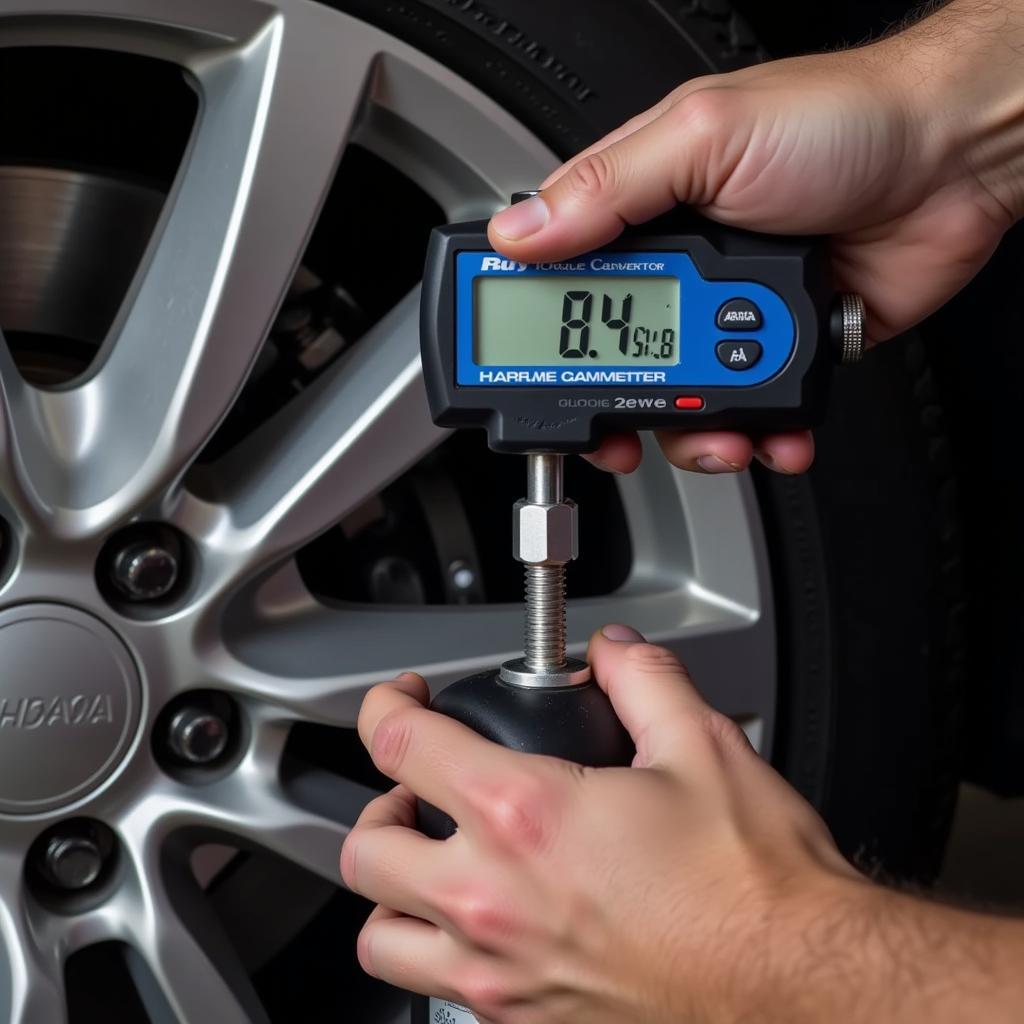Torque plays a crucial role in your vehicle’s performance, influencing everything from acceleration to towing capacity. But did you know that analyzing torque data can also be a powerful diagnostic tool? Torque Car Diagnostics delve into the intricate workings of your engine and transmission to pinpoint potential issues and ensure optimal performance.
 Torque Converter Car Diagnostics
Torque Converter Car Diagnostics
How Torque Diagnostics Work
Unlike traditional diagnostic methods that rely on error codes, torque car diagnostics analyze real-time data from various sensors throughout your vehicle’s powertrain. These sensors measure parameters such as engine RPM, throttle position, and wheel speed, which are then used to calculate torque output. By comparing these readings to manufacturer specifications, diagnostic tools can identify subtle deviations that might indicate an underlying problem.
For example, a sudden drop in torque during acceleration could signify a problem with the fuel delivery system, while fluctuating torque readings at a constant speed might point to a faulty sensor or a mechanical issue within the transmission.
Benefits of Torque Car Diagnostics
Torque car diagnostics offer several advantages over conventional diagnostic methods:
- Early Detection: Torque analysis can detect subtle performance issues before they escalate into major problems, saving you costly repairs down the line.
- Increased Accuracy: By analyzing real-time data, torque diagnostics provide a more precise and comprehensive picture of your vehicle’s health compared to simply reading error codes.
- Enhanced Performance: Identifying and addressing torque-related issues can optimize your vehicle’s power delivery, fuel efficiency, and overall driving experience.
Common Issues Detected by Torque Car Diagnostics
Torque car diagnostics can identify a wide range of issues, including:
- Transmission Problems: Slipping clutches, worn gears, and faulty solenoids can all affect torque transmission and be detected through diagnostic analysis.
- Engine Issues: Misfires, faulty fuel injectors, and air intake restrictions can impact engine torque output and be identified through data analysis.
- Sensor Malfunctions: Faulty sensors providing inaccurate data can lead to erroneous torque readings and trigger false alarms, making sensor diagnostics a crucial aspect of torque analysis.
The Future of Torque Car Diagnostics
As automotive technology advances, torque car diagnostics are poised to become even more sophisticated and integrated. With the rise of electric vehicles (EVs), torque analysis will play a crucial role in monitoring battery health, optimizing energy consumption, and ensuring optimal performance.
Furthermore, the increasing connectivity of vehicles will enable remote diagnostics, allowing mechanics to analyze torque data and identify potential issues without even needing physical access to the car.
FAQs about Torque Car Diagnostics
What is torque in a car?
Torque, simply put, is the rotational force produced by your car’s engine. It’s what gives your vehicle the power to accelerate, tow heavy loads, and climb hills.
How often should I get a torque diagnostic?
While there’s no set schedule, it’s recommended to include a torque diagnostic as part of your regular vehicle maintenance, especially if you notice any performance issues or suspect a problem with your engine or transmission.
Can I perform torque diagnostics myself?
While there are DIY car diagnostic tools available, analyzing torque data requires specialized knowledge and experience. It’s best to consult a qualified mechanic or technician who can interpret the data accurately and recommend appropriate solutions.
Conclusion
Torque car diagnostics are a powerful tool for maintaining your vehicle’s health and ensuring optimal performance. By analyzing real-time data and identifying subtle deviations, this advanced diagnostic method allows for early detection of potential problems, increased accuracy in diagnosis, and enhanced overall performance. As automotive technology continues to evolve, torque diagnostics will undoubtedly play an even more critical role in the future of car maintenance and repair.

Leave a Reply